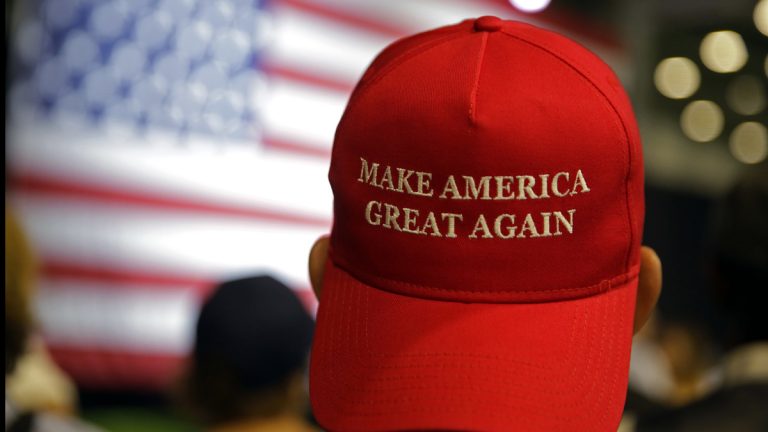After surveying America, the brilliant French journalist, Alexis de Tocqueville declared: “America is great because America is good; and if America ever ceases to be good, it will cease to be great!” Now the question must be asked, “Is America good?”
Having just returned from a speaking tour in Europe, I got the impression from most of the people I met over there that America is not generally viewed as being good, and I wondered if that means we have been loosing our greatness. In the nations that I visited, no one questioned that we are the wealthiest of nations or that we have the strongest military on the planet, but nowhere did I find that we were viewed as an especially good nation.
I don’t want to disparage my country, because there are many good things about us. Statistics will prove that we are the most charitable people in the world. Whenever there is a need anywhere in the world, the American people can be counted on to give generously to meet that need. Whether it’s responding to the suffering of an earthquake in Haiti or the catastrophic effects of a tsunami in Indonesia, we Americans are on the scene with volunteer help and financial aid.
When it comes to charitable work we’re number one, and when it comes to missionary service, agricultural programs, or health care and job creation in developing countries, we again come out on top.
Our problem of image, it seems, stems from the policies of our government. I am not singling out particular policies of the Trump Administration, although of late it has contributed much to our negative image overseas. Our problem of image goes back over several decades and administrations. The lack of moral justification for our involvement in the Vietnam War lingers on in the minds of many. There seems to be a consensus abroad that millions of people suffered and untold hundreds died unnecessarily in a futile effort by some of our leaders to avoid the embarrassment of having to admit that we were in a war that America could not win. We watched with tears in our eyes as body bags carrying the bodies of brave soldiers were brought home for burial, and dealt with feelings in the pits of our stomachs that they may have died in vain.
It didn’t help when there was bipartisan support for an Iraq War that created millions of refugees with untold hardships and devastation for millions of others.
Today, we continue to ignore the pain of Palestinian people on the West Bank who have had their land taken from them illegally to make room to build Israeli settlements when our government could have stopped it.
As of late, America’s treatment of refugees — especially the separation of children from their parents who illegally crossed our southern borders — has appeared inhumane to many people around the world. The words of Ezra Lazarus inscribed at the base of the Statue of Liberty now mocks our onetime good intentions as a safe haven for immigrants as it reads:
“Give me your tired, your poor,
Your huddled masses yearning to breathe free,
The wretched refuse of your teeming shore.
Send these, the homeless, tempest-tost to me,
I lift my lamp beside the golden door!”
Moving to the domestic scene, we now have a government that appears ready to take away health and education benefits from the poor while giving huge tax benefits to the upper five percent of our citizens, and then there’s the dismantling of regulations that had been established to protect the environment. People in Europe, where I recently visited, are aware of these policies.
Also, there’s the exposure of the latent racism that we Americans tried to pretend was part of the past. The events at Charlottesville in which neo-Nazis conducted a torchlight march through the campus of the University of Virginia and a president who failed to categorically condemn them, further marred our identity. The Black Lives Matter movement dispelled any remaining illusion that we had moved into a post-racist era.
We once were noted around the world for being a champion for human rights. This, in spite of our willingness to tolerate slavery for so many years, and our denial of the social and political rights for women. Our oppression of Native Americans has been another blot on our human rights record. Yet, in spite of these many shortcomings, there have been people everywhere who once regarded Americans as a shining light for human rights advocacy.
Now we are facing a test of the validity of America’s human rights claims. When Jamal Khashoggi, the American-based journalist who once contributed articles to the Washington Post, recently disappeared and was probably murdered after entering the Saudi Arabia consulate in Turkey, our president was reluctant to declare any significant outrage. What was worse is that a leading evangelical leader, Pat Robertson, host of the Christian 700 Club television show, commented that we shouldn’t make a fuss over this matter since, according to President Donald Trump, Saudi Arabia is about to spend 100 billion dollars buying U.S. arms. Such statements do not bode well for the reputation of a nation and its evangelical citizens that claims high moral values, especially on human rights.
All of this leads me to wonder what Alexis de Tocqueville would have to say about America’s goodness and greatness these days. If he was writing his famous book, Democracy in America today, I wonder what he would say.
The Bible declares that it is “righteousness that exalts a nation” (Proverbs 14:34). If our president really wants to lift up our nation in the eyes of the world, I wonder if he considers this when he chants, “Let’s make America Great again!”
Among those who would make America great again, there needs to be soul searching.

